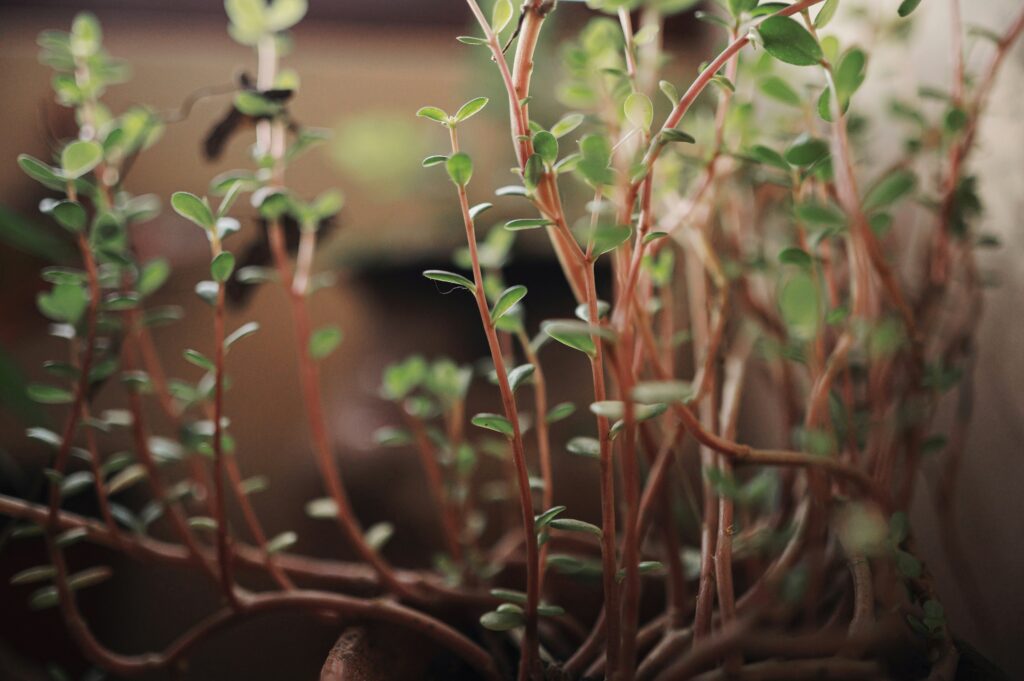
Stress collects, clings to routines, and erodes sharpness before lunch hour even ends. Distraction, the sneaky saboteur that empties brains of yesterday’s careful plans, never seems far behind. Yet not every solution comes in a pill bottle or an app notification screaming “focus.” Simple plants with ages of practice supporting clarity and calm sit quietly within reach. Forget laboratory walls. Nature’s everyday botanicals offer another path, one less paved but well traveled by those not content to be ruled by restlessness. The evidence stacks up. Plenty have looked beyond caffeine and found something both practical and gentle hiding in their kitchen cupboards or community gardens.
Roots That Ground the Mind
Who among the over-caffeinated masses hasn’t wished for focus without jitters? Enter the world of adaptogens. Organic remedies like One Farm utilize ashwagandha and rhodiola, which help potentially manage stress and could support concentration. Traditional wisdom, perfected over the ages, can help manage cortisol, the stress hormone that evolved in response to evolutionary peril, according to recent studies. Ashwagandha is not a sedative. It potentially steadies nerves so thoughts don’t scatter when deadlines loom. Rhodiola may step in to boost mental stamina during crunch times when exhaustion presses down hard on clear thinking. Not exotic luxuries, just dependable basics grown with care.
Green Tea: Calm in a Cup

They wrap their hands around a warm mug as their difficulties diminish. L-theanine, a chemical that reduces anxiety without affecting alertness, is found in green tea. While caffeine often makes headlines, L-theanine subtly alters brainwaves to resemble those of meditation, and it does not cause a crash after this boost. A balanced rise in energy calms tensions better than coffee does. It helps protect against brain fog in the afternoon or keeps you focused before a meeting.
Lavender: Scent for Settling Chaos
Sometimes calming a racing mind is as simple as opening a bottle or stepping outside after the rain, where lavender blooms stand tall. Lavandula angustifolia isn’t just lovely. It contains compounds shown to slow heart rates and ease nervous tension almost instantly, simply through scent. Aromatherapy is often dismissed as fluff until sleep returns after diffusing lavender oil before bed or shoulders drop after rubbing a few drops onto wrists during a mid-commute traffic jam (science backs up those stories). Lavender belongs in boardrooms and bedrooms alike because nobody wins when frazzled minds run meetings.
Lemon Balm: Clarity from Simplicity
Forget fancy labels. Lemon balm grows abundantly in lawns and provides more effective mental support than many prize-winning exotic plants. Melissa officinalis contains compounds known to calm anxious surges while sharpening memory recall, a rare pairing appreciated by anyone juggling details and deadlines simultaneously. Lemon balm tea stands ready beside herbalists’ prized tinctures, but works fast enough for busy hands brewing between tasks too close together on digital calendars. It supports mood without drowsiness. It sharpens thought instead of blurring lines between workday hours and waking worry.
Conclusion
Calm doesn’t always require emptying wallets at specialty shops or queuing daily reminders on smartwatches promising productivity gains that evaporate within weeks. Plants already trusted by generations still do some of the best heavy lifting, with roots stabilizing busy minds, leaves offering steady energy, and flowers sending subtle signals to slow down frantic pacing. Ordinary herbs restore calm confidence, piece by stubborn piece, across long afternoons dotted with interruptions that no system can fully prevent. Everyday botanicals haven’t lost relevance. If anything, they’re overdue for recognition as genuinely reliable allies amid chaos, both old and new.
Image attributed to Pexels.com

